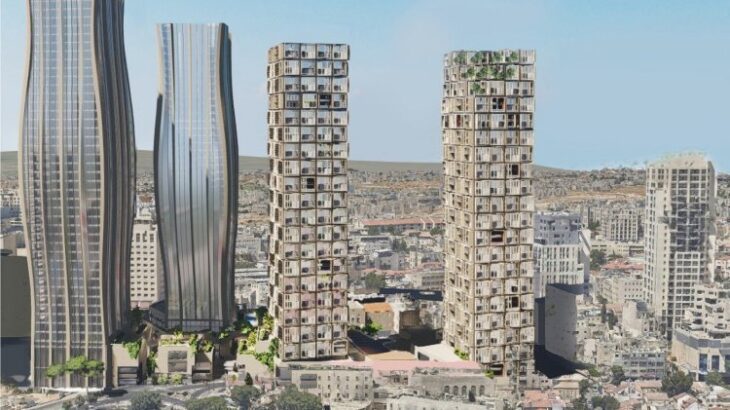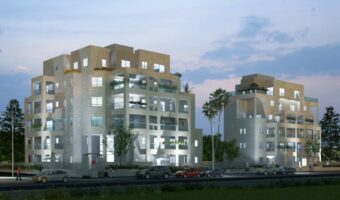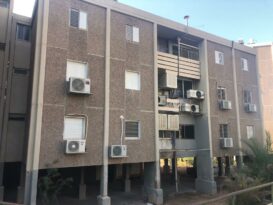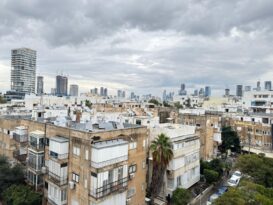In recent years, Jerusalem has undergone a rapid wave of urban renewal, with its skyline increasingly dotted by high-rise towers. A survey conducted among members of the Chamber of Real Estate Appraisers found that about two-thirds expect that this development will lead to a rise in Jerusalem home prices, while roughly 75% believe it will lead to a spike in rental costs. But what effect do they think the war will have on housing prices in the city?
Will Jerusalem home prices continue to rise despite the rapid urban renewal and significant increase in housing supply? A recent survey conducted among members of the Real Estate Appraisers Association in Israel offers an interesting perspective on how the war, alongside urban renewal policies and high-rise construction, may affect the city’s housing market. The survey, led by Gavriel Rabani, Chair of the Jerusalem District and a member of the Association’s Academic Committee, examined the impact of urban renewal and tower development on both home prices and rental rates—along with the effects of the Iron Swords war on the capital’s real estate market.
The survey found that about 24% of appraisers think urban renewal and residential towers will cause housing prices to drop by up to 10%. However, they are a clear minority. About 40% predict a moderate price increase of up to 5%, while 17% foresee rises of 6%-10%, and 8% estimate a 10%-15% hike. Roughly 11% believe urban renewal won’t affect Jerusalem home prices at all.
Regarding the rental market, 75% of respondents believe that urban renewal and high-rise buildings will lead to higher rental prices. Around 25% expect rent to rise by 10%-15%, and 35% expect an increase of 6%-10%. On the flip side, about 20% believe rent prices will actually fall by up to 10%.
When asked about the general effect of the war on home prices in Jerusalem, 65% of respondents said it caused an increase of up to 10%. Meanwhile, 17% said the war had no impact, and 16% reported a price drop. Within the luxury segment, 62% said prices went up, and 15% said they rose by 10%-15%. As for rent, 36% reported increases of 6%-10%, 27% saw smaller rises of 1%-5%, and about 25% believed the war had no effect on rents.
“Demand from wealthier buyers is driving up prices”
Gavriel Rabani, who led the survey, explained that high-rise construction as part of Jerusalem’s urban renewal won’t reverse the upward trend in Jerusalem home prices, but the increase will be moderate. “Whole neighborhoods are being revitalized with improved infrastructure, public facilities, commercial centers, and green spaces,” he said. “That naturally draws in more affluent residents, which puts steady upward pressure on prices.”
Jerusalem leads all Israeli cities in urban renewal planning, issuing over 3,000 building permits in 2024. However, that still marked a 12% drop in housing starts compared to 2023. A total of 5,183 housing units were started in the city in 2024—about five units per 1,000 residents. In contrast, Tel Aviv began construction on 13 units per 1,000 people. “Even though Jerusalem leads in planning, it’s still in the midst of realizing its full building potential. A significant stock of planned units is still ‘in the pipeline,’ but completing them will take time,” Rabani explained.
Regarding rental prices, Rabani said the survey shows an upward trend. “In theory, the increase in housing supply from urban renewal should reduce rents,” he said. “But the reality will be different. Initially, there’s a ‘temporary’ spike in rent because current tenants are displaced during construction and need alternative housing. Later, the renewed areas attract more affluent residents with higher demand for new apartments, keeping rents high.”
Rabani pointed to Kiryat Yovel as a prime example of this transformation. “In recent years, we’ve seen significant urban renewal in the neighborhood, including infrastructure upgrades, new commercial and employment zones, and vast improvements to public spaces. As a result, it’s attracting residents with higher socioeconomic status, pushing up demand. These trends have led to a roughly 30% increase in Jerusalem home prices in the area over the past few years. However, as more projects are completed and supply increases, the pace of price growth is expected to slow due to greater market stability.”

Nadlan Center is Israel’s leading real estate news and knowledge platform in Hebrew, created for industry professionals. Founded by experts in the field, it delivers in-depth, up-to-date coverage on urban renewal, planning and construction, taxation, and housing policy — tailored to the needs of developers, investors, planners, and financiers. In addition to its widely read news content, Nadlan Center hosts major industry events, professional conferences, and training programs that support the growth and development of the Israeli real estate sector.
Learn more: https://www.nadlancenter.co.il







